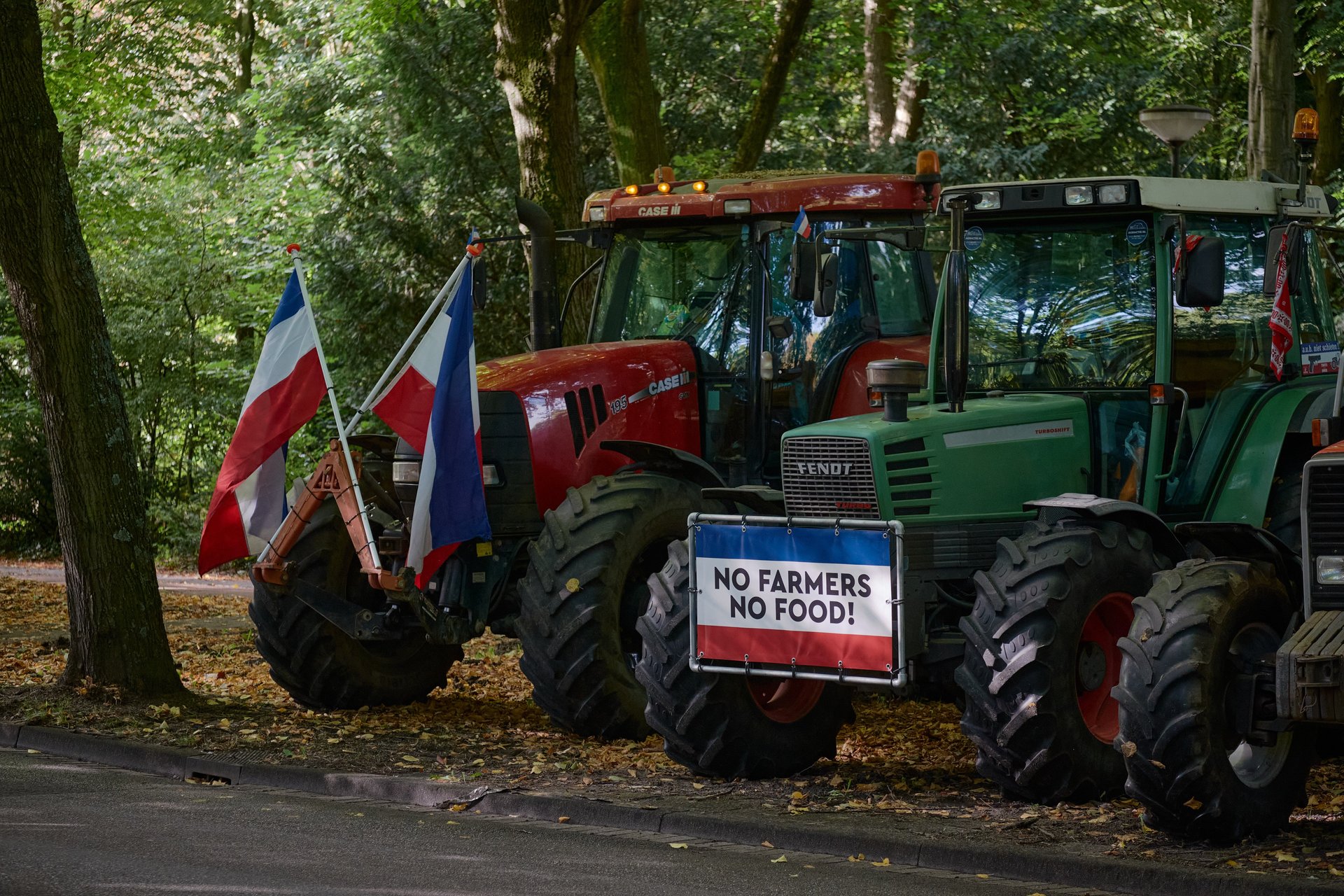How a Dutch party born out of farmers' protests won big in the Senate election
BBB was created in 2019 following protests against the government’s plan to cut agricultural emissions

A populist party formed to represent farmers’ interests has become the third-largest party in the Netherlands after winning more seats than expected in the Dutch provincial elections on Wednesday (March 15) that determine seat allocation in the country’s Senate.
Suggested Reading
The four-year-old BoerBurgerBeweging (BBB), known in English as the Farmer-Citizen Movement, looks set to win 15 of the 75 seats in the Senate, five more than prime minister Mark Rutte’s conservative VVD party. The ruling coalition altogether lost eight seats, holding on to 24. The left-wing coalition of the Green Party and the Labor Party is also expected to win 15 seats. Senators have the power to block legislation passed by the lower house of parliament.
Related Content
BBB was created in the aftermath of large-scale protests in 2019 against the government’s proposed regulation of nitrogen-based fertilizer, as well as other environmental policies. The protests continued throughout the pandemic, and hanging the Dutch flag upside down became a way to show solidarity with the farmers.
The Netherlands has said they will cut nitrogen and ammonia emissions by 50% in the next decade after the European Union found toxic levels of nitrogen oxides in the soil and water. The government plans to achieve this by buying out thousands of farms and drastically reducing the number of domestic livestock.
Livestock farming in a country like the Netherlands creates an elevated amount of emissions because of how concentrated the agriculture is. In order to keep their farms at scale, farmers must keep animals in close quarters and constantly till the same area of land, not allowing the soil to regenerate.
Party leader Caroline van der Plas, a former journalist, hailed the results as a victory for regular citizens. “Today people have shown they can’t stay at home any longer. We won’t be ignored any more,” she said, quoted in the BBC.
A timeline of the farmers’ protest movement
October 2019: Thousands of farmers travel to The Hague to protest new regulations. Their tractors are said to cause hundreds of miles of traffic.
December 2019: Protests continue, including significant blockades along the German border. The protests are organized in collaboration with German farmers.
October 2020: Five members of the so-called Farmers Defense Force visit opposition politician Rob Jetten late at night with a package containing several samples of meat “for his health.” Jetten is a vegetarian and condemns any protestors visiting his home.
December 2020: Protestors block a major food distribution center in Breda, snarling the supply chain and causing public opinion to turn against the protesters.
June 2022: Protests return after the government announces new plans to reduce an estimated 30% of all livestock farms in the country. Tractors block highways and burn bales of hay on the side of the road.
July 2022: Police shoot at a 16-year old boy driving a tractor during a protest. Although the teen is uninjured, the incident outrages protestors.
February 2023: Deputy prime minister Sigrid Kaag is confronted by protesters holding burning torches during a campaign event. Rutte condemns the incident.
Why are Dutch farmers protesting emissions reductions?
The farmers and other blue-collar workers that support the BBB are not simply opposed to fertilizer standards. Rather, these farmers–many of whom are from families who have been farming in the Netherlands for generations–are mad that European Union regulators are unilaterally telling them how to take care of their soil.
The protestors see farming as an inherent aspect of Dutch culture, with the Netherlands historically being one of the world’s agricultural exporters. Currently, the Netherlands is the second-largest exporter of agricultural products, with estimated exports of 104.7 billion euros ($110 billion), according to Wageningen University. But, according to Christianne van der Wal-Zeggelink, the government’s minister for nature, the country wants to change its approach to agriculture in line with emissions reduction goals to tackle climate change.
Critics have argued that the protestors are not taking the potential outcome of the climate crisis seriously enough. But the farmers have responded by calling for repercussions on major corporations operating in the Netherlands like Shell and Tata Steel. They argue that weather polluters cause much more damage to the environment, but are shielded from reforms by political lobbying of the government.
Last July, polling by Ipsos found that most Dutch citizens sympathized with the goals of farmers, but disagreed with their methods.
🚜 Other farmers’ protests in Europe
🇧🇪 Belgium: Last week, as many as 2,700 tractors blocked traffic and sounded their horns in the streets of Brussels. Protestors were there to voice their concerns over new regulations on nitrogen emissions.
🇫🇷 France: Earlier this year, hundreds of tractors swarmed into Paris in a demonstration against new pesticide regulations that farmers say threaten their bottom line.
🇩🇪 Germany: Several hundred tractors blocked roads across Germany in 2020, protesting the economic cost of environmental regulations.
